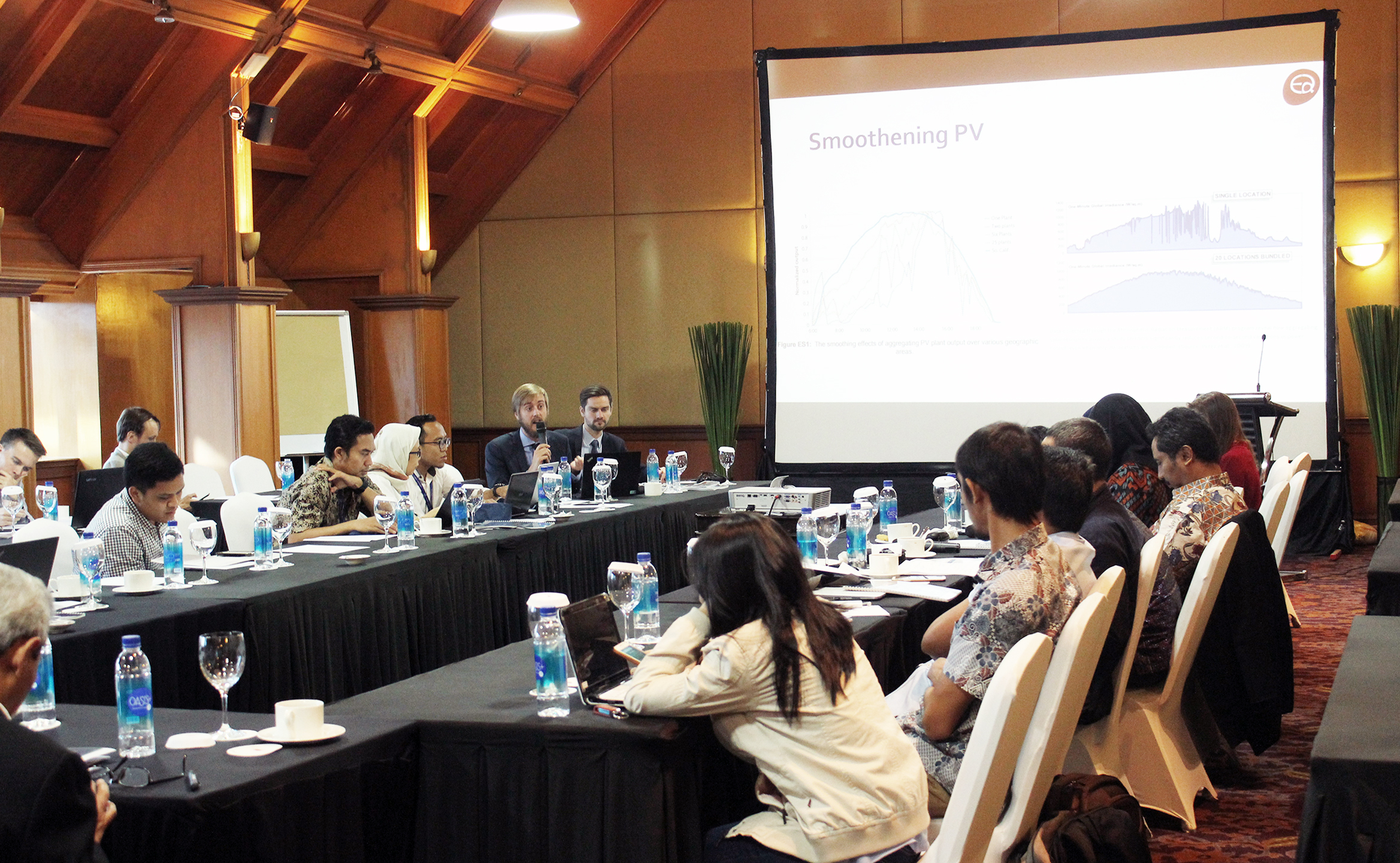Denmark and Indonesia collaborate on developing sustainable islands

Today the Danish-Indonesian island cooperation presented two analyses to support the low carbontransition in Lombok. The analyses suggest that a renewable energy share close to 60 % in the power system can be cost-efficient solution by 2030. Moreover, a number of prefeasibility studies indicate that wind, solar, biomass and waste incineration power plants offer attractive investment opportunities under the current regulation.
Two studies addressing the uptake of renewable energy on Lombok are financed by the Danish Energy Agency and the Danish Embassy in Jakarta. Prefeasibility studies of renewable energy generation technologies along with technologies to support the integration of fluctuating energy sources were carried out. The studies indicate that wind power, solar power, biomass and waste incineration power plants are all attractive investment opportunities for private investors. Based on this information and local electricity system data, the Lombok Energy Outlook report has examined scenarios for the Lombok power system from a planning and techno-economical perspective using least cost optimization, putting particular focus on the costs and benefits of renewable energy technologies. The Lombok Energy Outlook will be published in January 2019.
The results of the two studies were presented and discussed at a conference in Jakarta today. The Secretary General of National Energy Council in Indonesia, Pak Saleh, states that “the two studies of Lombok shows that there is a large potential for renewable energy in Lombok and that it can be integrated in a cost-efficient manner. This is a valuable contribution to the regional energy planning in Lombok and it will make it clear to developers and investors that Lombok is a place for attractive investment opportunities”.
The Danish Ambassador in Indonesia, Rasmus Abildgaard Kristensen, states that ”the Danish-Indonesian cooperation on energy systems has been very successful so far. The results are very promising, and I think there is ample room to scale up the successful project in Lombok to other provinces and islands to further reduce emissions and local pollution as well as decreasing the electricity cost to the benefit of the Indonesian people”.
The Danish Energy Agency and the Danish Embassy in Jakarta will continue the cooperation with the local authorities in Lombok to support the low carbontransition of the island. In addition, the concept will be scaled up to other island systems and regions in Indonesia to support renewable energy and energy planning in other provinces.

About:
The SSC-programme between Denmark and Indonesia started in 2016 and has created government-to-government collaboration between the Indonesian Ministry of Energy and Mineral Resources (MEMR), the National Energy Council (NEC) in Indonesia and the Danish Energy Agency. The objective is to assist relevant policies, strategies and solutions to increase the electrification rate and to achieve the government’s long-term objectives of renewable energy and energy efficiency.
The two studies on Lombok have been prepared jointly by the National Energy Council, Regional Government (Dinas ESDM NTB), Lombok Regional Power Company (PLN NTB), Ea Energy Analyses, KPMG, the Royal Danish Embassy and the Danish Energy Agency.
A common denominator for Indonesia and Denmark are the many small and medium-sized islands. In Indonesia, many islands, including Lombok, primarily generate their electricity from diesel and coal-fired power plants in fragmented electricity systems.
Learn more about the Danish-Indonesian cooperation on the Danish Energy Agency’s webpage.
Contact:
- Advisor Loui Algren, +45 3395 4350, loa@ens.dk
- Advisor Marievi Vestarchi, +45 3392 6747, mev@ens.dk